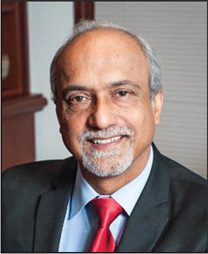BY VIRENDER SODHI
In my article in the July/August/September issue I wrote about clinical depression in young people and the treatments that are standard in Western medicine, including antidepressant drugs known as selective serotonin reuptake inhibitors, or SSRIs. All of these drugs are known to have unpleasant and potentially dangerous side effects, including nausea, headache, clenching of teeth, strange dreams, dizziness, weight loss/gain, increased feelings of depression and anxiety, tremors, restlessness, liver or kidney impairment, and a loss of sense of reality. Based on studies, regulatory agencies decided in the last few years that it was prudent to inform patients of the most dangerous side effect of them all: increased thoughts of suicide and suicidal behavior. On the other hand, recent reports purport a relationship between a subsequent decrease in pediatric SSRI prescriptions and an increase in adolescent suicide.
In my opinion, there is no sense risking that your child will become suicidal from taking antidepressants when there are natural remedies for depression that have proven to be both effective and totally safe. For example, along with counseling, supplements of 5-Hydroxytryptophan, St. John’s wort extract, ashwagandha, Bacopa monnieri and Mucuna pruriens have all been effective in my clinical experience.
The chemical 5-Hydroxytryptophan (5-HTP) is extracted from the seed of an African plant (Griffonia simplicifolia) and is the direct precursor to serotonin. In addition to increasing serotonin levels (which correspond to feelings of well being), 5-HTP causes an increase in levels of endorphin and other neurotransmitters. Numerous double-blind studies have shown that it has effectiveness equal to the SSRIs, and it offers several advantages: it is less expensive, better tolerated and associated with fewer and much milder side effects. The typical recommendation is 50 to 100 mg three times daily.
St. John’s wort extract (Hypericum perforatum) is a well-known natural antidepressant. Over thirty double-blind studies involving over 2,000 patients with mild to moderate depression have shown St. John’s wort extract to be effective. However, while it appears to be as, or possibly more, effective than conventional antidepressant drugs in mild to moderate depression, it does not appear to be as beneficial in the treatment of severe depression. St. John’s wort extract’s advantages over pharmaceutical drugs include far fewer side effects, lower cost and greater patient satisfaction. The dosage for St. John’s wort extract (standardized for hypericin and hyperforin content) is 900 to 1,800 mg daily. In severe cases, St. John’s wort extract can be used safely in combination with 5-HTP.
People taking prescription drugs need to check with their doctor or pharmacist before taking St. John’s wort extract, as it appears to induce enzymes in the liver and gut that detoxify certain drugs. St. John’s wort extract may also potentiate prescription antidepressant and anti-anxiety drugs. While I am of the opinion that St John’s wort and 5-HTP can be combined with low doses of anti-depressant medications, I strongly advise it only be done under the strict supervision of a physician.
Ashwagandha (Withania somnifera), standardized for withanoloids, has shown to be effective in the treatment of anxiety and depression in several studies alongside pharmaceutical antidepressants. I recommend 1,000-1,500 mg three times a day. Ashwagandha is a wonderful adaptogen, increasing the body’s resistance to stress, trauma, anxiety and fatigue, and has many other positive health benefits.
Bacopa monnieri, another brain tonic herb, has also shown antidepressant and anti-anxiety effects. Both of these herbs can, however, increase the effects of benzodiazepines and phenobarbiturates. Mucuna pruriens, another herb, has been shown to increase dopamine in the body, therefore it is effective in cases of low dopamine levels. I recommend 250 mg three times per day.
The primary advantage of these natural extracts and herbs over the chemical antidepressants is that they have minimal or no side effects, yet offer excellent results.
Studies looking at exercise, yoga, pranayama and meditation have shown positive outcome in almost all diseases, but especially anxiety, post traumatic stress disorder, depression, stress-related medical illnesses and substance abuse.
I recommend fast walking at least 45 minutes and yoga and pranayama for 30 minutes every day. Alternate nostril breathing, anulom-vilom, and fire breath, kapal batti, are of great benefit in lowering depression and anxiety. There are many forms of meditation, among them quieting the mind, reciting a mantra, getting rid of all thoughts, guided imagery and holding attention focused. All forms have shown remarkable results. Keep in mind that it may take four to six weeks before you start feeling the difference when using a combination of herbal and nutritional therapies with exercise, yoga, pranayama and meditation. But this is the same expected time frame as in standard drug treatments.
Clearly, modern drug therapy may be dangerously unsafe for teens with depression. It is important when seeking help for your son or daughter to work with health practitioners who are open to the various options and are willing to work with alternative practitioners. No matter what approach is used, a seriously depressed person should always be under the supervision of a psychiatrist, working together with complementary practitioners.
Let me end with some testimony about the effectiveness of natural remedies for depression. A 24-year-old boy from Alberta, Canada, who has been on antidepressants for one year, came to my clinic near Seattle. He was put on a nutritional program along with St. John’s wort, ashwagandha and Bacopa, plus exercise, yoga, meditation and pranayama. Three months later, after consulting his psychiatrist, I learned he was off antidepressants and feeling back to normal again. On a personal note, last year my sixteen-year-old son, Rishi, died tragically. My wife, Rekha, our twenty-year-old son, Gunny, and I all went into deep depression. Following a dietary, herbal and physical regimen, we have been able to cope. Gunny was the hardest hit of all. It was a rough year, but finally he turned around, all without any chemical medications.
Dr. Virender Sodhi holds an M.D. (Ayurveda) from India and a N.D. from Bastyr College of Naturopathic Medicine, USA. E-mail: drsodhi@ayurvedicscience.com. Web: http:/www.ayurvedicscience.com [http:/www.ayurvedicscience.com].
